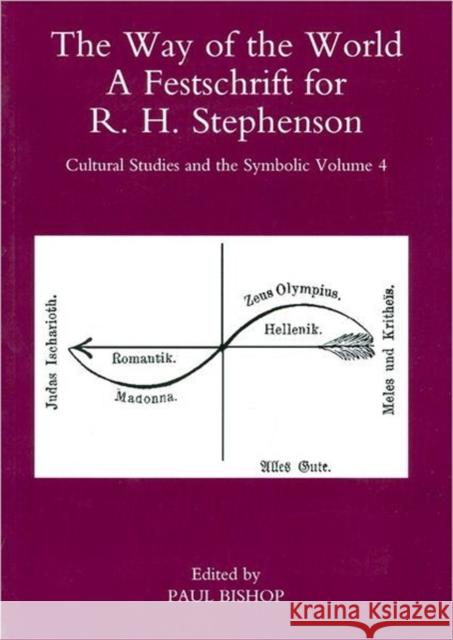The Way of the World: A Festschrift for R. H. Stephenson » książka
The Way of the World: A Festschrift for R. H. Stephenson
ISBN-13: 9781906540951 / Angielski / Miękka / 2011 / 154 str.
Published by Maney on behalf of the Centre for Intercultural Studies, Department of German Language and Literature, University of Glasgow.
Inaugurated with a collection of 'intercultural readings' of Goethe on the occasion of the 250th anniversary of his birth, the series Cultural Studies & the Symbolic has, to date, examined various aspects of Ernst Cassirer's theory of symbolic forms, including 'the paths of the symbolic' ― how to symbolize is to have culture ―, and 'the persistence of myth' ― the ubiquitousness of that 'symbolic form' Cassirer described as 'lurking in the dark'.
In its fourth volume, we turn our attention to the 'world', in the sense in which Nietzsche (in The Gay Science, 108) contrasts 'the astral order in which we live' as opposed to 'the total character of the world' which is, he tells us, 'in all eternity' -- 'chaos'. For Cassirer, the function of the symbol was to give form and thus, ultimately, to give birth to the world: as he put it in volume 1 of The Philosophy of Symbolic Forms, we must seek to understand how, in 'the function of linguistic thinking, the function of mythical and religious thinking, and the function of artistic perception', we attain 'an entirely determinate formation, not exactly of the world, but rather making for the world' -- eine ganz bestimmte Gestaltung nicht sowohl der Welt, als vielmehr eine Gestaltung zur Welt. And yet the world has, as the title of a famous Restoration comedy puts it, its 'ways'; after they have created it, even the symbol forms inhabit a specific politico-cultural context. To put it another way: how does one negotiate the 'symbolic forms' and the bureaucratic world of application forms?
The volume is offered as a Festschrift for Roger Stephenson, who recently retired from the William Jacks Chair of Modern Languages (German) at the University of Glasgow. It consists of a collection of essays reflecting his interests in various aspects of modern German and European literature, and his particular his engagement with Weimar classicism, the so-called Meisterdenker tradition of ideas, and his commitment to close reading ― illuminated by theory ― within a broad cultural context.
Contributors include John Michael Krois, Barbara Naumann, Birgit Recki, T.J. Reed, Martin Swales, Isabella Woldt, and the volume's editor, Paul Bishop.











